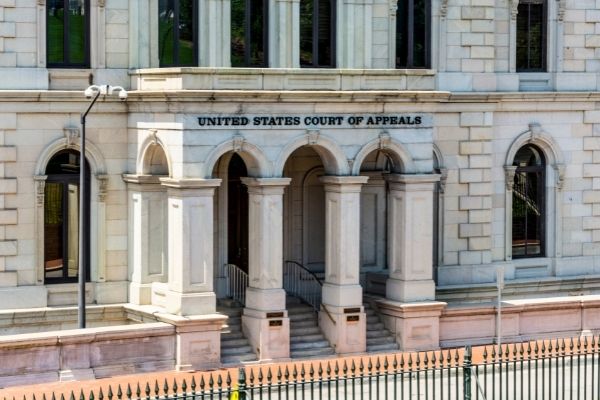Ideal Federal Appeal Lawyers: Getting Justice in Federal Appeals
Ideal Federal Appeal Lawyers: Getting Justice in Federal Appeals
Blog Article
Demystifying the Refine of Federal Appeals: What You Required to Know
Browsing the detailed world of federal charms can usually feel like going across uncharted waters for those strange with the process. Comprehending the nuances of appellate court jurisdiction, the details of submitting a notice of appeal, presenting an engaging brief, and making an influential dental disagreement are crucial components that can significantly affect the end result of a situation. By unwinding the layers of complexity bordering government appeals, people can acquire a clearer understanding into the devices that regulate this vital phase of the legal system.
Understanding Federal Appeals Process
Diving right into the elaborate world of the federal charms procedure unveils a organized and systematic journey with the judicial system. Federal appeals function as a critical device for assessing choices made by lower courts. Comprehending this process is essential for anybody involved in lawful proceedings at the federal level.
The procedure normally starts with a party dissatisfied with a lower court's judgment submitting a notice of allure. This activates an evaluation by a greater court, where a panel of judges evaluates the lawful disagreements presented by both celebrations. Briefs detailing the legal reasoning behind each celebration's placement are submitted, and dental disagreements may be heard to make clear complicated issues.
The appellate court's decision is based on a thorough exam of the reduced court's proceedings and the debates presented. When the appellate court gets to a decision, it can attest, turn around, remand, or change the lower court's judgment, providing clearness and finality to the legal conflict.
Appellate Court Jurisdiction Clarified
Appellate court territory refers to the extent of situations that a particular appellate court has the power to assess and determine upon. Unlike test courts that listen to situations for the first time, appellate courts are limited to assessing choices made by lower courts.
Appellate courts have jurisdiction over specific kinds of instances, commonly those involving legal errors, step-by-step problems, or inquiries of regulation as opposed to accurate conflicts. The territory of appellate courts is generally outlined in statutes and legislations that regulate the court system. Recognizing appellate court territory is critical for events associated with the appeals process as it identifies whether a situation is eligible for evaluation and the extent to which the appellate court can intervene in the reduced court's decision.
Filing a Notification of Allure
The preliminary action in commencing the government charms process involves submitting a Notice of Appeal with the suitable appellate court. This essential document officially alerts the court and the other events associated with the situation that the appealing event intends to look for a testimonial of the reduced court's choice. Filing a Notification of Charm is a strict procedural demand that establishes the appellate procedure in motion.
When preparing the Notice of Charm, it is vital to make sure compliance with the details policies and guidelines of the relevant appellate court. federal appeal attorneys. The record has to commonly include details such as the instance name, the reduced court's name, the day of the judgment being appealed, and a succinct statement indicating the grounds for the charm

Briefing and Dental Disagreement
In the appellate procedure, offering created briefs and participating in oral arguments play critical duties in supporting for the appealing event's position before the appellate court. Briefs are extensive legal documents that describe the events' debates, legal authorities, and evaluation supporting their positions. These composed submissions provide the court with a thorough understanding of the truths of the case, the appropriate legislation, and why the appealing party believes the reduced court's decision need to be reversed.
Adhering to the submission and evaluation of the briefs, oral disagreements use the parties a possibility to additional clarify their placements, attend to any concerns the appellate judges may have, and highlight bottom lines from their composed briefs. Dental debates are a chance for the lawyers to persuade the judges via verbal campaigning for and reactions to queries from the bench.
Both the written briefs and oral disagreements are essential elements of the appellate process, allowing celebrations to offer their instance extensively and compellingly before the appellate court. - federal crime lawyer
Getting the Appellate Court Decision
The appellate court's choice is usually supplied in a written layout and describes the court's verdicts on the lawful problems presented, the thinking behind their choice, and the judgment provided. The time framework for receiving the appellate court's decision can vary, but courts aim to supply prompt resolutions. Whether the appellate court verifies, turns around, other or remands the reduced court's decision, recognizing the ramifications of the judgment is essential for all parties entailed in the appellate procedure.
Final Thought
Understanding the appellate court territory, filing a notice of allure, preparing briefs, and providing dental debates are all vital components of this process. Inevitably, getting the appellate court choice can offer clearness and resolution to legal disagreements.
As we proceed from recognizing the government allures process to exploring the details of appellate court territory, a fundamental facet comes to light concerning the authority and limitations of these greater courts in the legal landscape. Appellate court jurisdiction refers to the range of cases that a specific appellate court has the power to decide and assess upon. Unlike trial courts that hear situations for the initial time, appellate courts are restricted to reviewing choices made by lower courts. Understanding appellate court jurisdiction is essential for celebrations entailed in the allures procedure as it establishes whether a situation is qualified for review and the degree to which the appellate court can intervene in the reduced court's decision.

Report this page